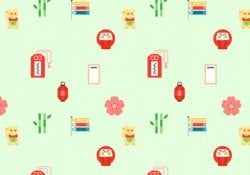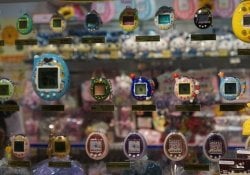Japanese is a bit of a complex language, and at the same time simple and easy. One thing that may seem strange to us, who speak Portuguese, are the countless identical words that exist in the Japanese language. In Portuguese, there are similar situations, such as "manga" for a shirt sleeve or "manga" for the fruit. But in Japanese, this really happens many, many times, in thousands of words, and that is one of the main reasons for the existence of kanji. In this article, we will see some of these words, but we will only focus on those with different kanji and the same meaning, without mentioning words that are identical but have various meanings.
I'll just quote pronunciations that have more than 3 different meanings, and I'm not really quoting the most known ones, because it's not easy to select, I'm just giving some examples.
| Romaji | Word 1 | Word 2 | Word 3 |
| Ame | Rain | 飴 - bullet | 編め - knitting, braiding |
| Jinshin | 人心 - People's hearts and feelings | 人身 - Human body | 仁心 - Benevolence |
| unmodified | 地所 - earth, terrain, soil | Dictionary | 自署 - signature |
| Kika | 帰化 - Naturalization | 気化 - Vaporization | 奇禍 - Accident, disaster |
| Muchi | 無知 - ignorance, stupidity | 鞭 - whip, stick | 無恥 - impudence |
| Oku | 億 - one hundred million, astronomical number | 奥 - interior, background 2 - nobleman's wife, lady | 屋 - roof, covering of the house |
| Kami | Hair | 神 - God | 紙 - Paper |
Seika is one of the pronunciations that has many different meanings, using different kanji.
- 正価 - Fixed Price
- 成果 - Result, fruit of work
- 製菓 - Confectionery, candy making
- 青果 - Fruits and vegetables
- 生家 - Place of birth
- 聖歌 - liturgical chant, canticle
- 盛夏 - Midsummer
- 声価 - Reputation
Of course I cite just a few examples. If you take a Japanese dictionary on almost every page you will find one or two words with the same pronunciation, but with totally different kanji and meanings. The purpose of this article is just to show you how challenging it can be to learn and understand Japanese.
I couldn't separate the most used words, I took it randomly from a dictionary. It really may seem difficult or strange, but at the same time I practice. Thanks to the context of the conversation, it is unlikely that we end up confusing a word, especially when reading, kanji help a lot. Just living with language makes you think this is something extremely normal.
It also reminds us why Japanese names are the same, and have so many different meanings. We can't forget that some of these words can be pronounced in different ways, so it's good to learn kanji.
Is that you? What words do you end up confusing for being equal? Comment here, help increase our word list.




